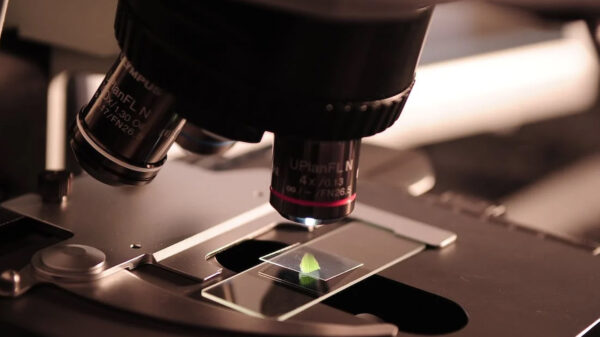
A recent Wall Street Journal article (China, Unhampered by Rules, Races Ahead in Gene-Editing Trials), reports that Chinese doctors are beginning “to treat cancer patients using a promising new gene-editing tool.” On it’s face, this sounds like something commendable: saving the lives of dying cancer patients. The American reporters who wrote the article clearly believe the technology is valuable and should be pursued, especially since U.S. scientists helped devise the gene-editing tool (known as Crispr-Cas9). The problem, according to the reporters? American regulations are preventing doctors from using the gene editing tool in human trials.
Chinese doctors don’t face similar restrictions. Physicians in China have been drawing blood from cancer sufferers, modifying disease-fighting cells with the Crispr-Cas9 tool, and infusing improved, cancer fighting cells back into the patients. Very few Chinese regulations govern or limit this treatment, even though no other country in the world has allowed the technology to be used in a similar way. Experts in America are now concerned that the United States is “at a dangerous point in losing our lead in biomedicine.” In spite of this, American regulators are hesitant to approve gene-editing technologies on humans without fully understanding all the risks. According to the article, Crispr therapies might result in “irreversible changes in people that may not emerge for years,” and may even “spark a dangerous immune reaction.”
It’s no wonder that American regulators are cautious about rushing into full Crispr-Cas9 trials with humans, even though they have no such hesitation when it comes to testing the technology on other animals. Why the distinction? Why are we willing to risk the lives of rats, monkey or other laboratory animals, yet hesitant to risk the lives of humans? Perhaps it’s because Americans still acknowledge (or at least remember) their Christian heritage. The Biblical worldview describes humans as uniquely designed for a purpose in the image of God, unlike other animals. This may be one of the reasons we instinctively become more cautious when testing humans rather than lab rats.
“Western scientists,” according to the article, seem to understand the difference between “mice and men.” Scientists who were interviewed for the article “didn’t suggest America’s stringent requirements should be weakened. Instead, many advocate an international consensus on ethical issues around a science that makes fundamental changes to human DNA…” It appears that Western doctors and scientists, raised in a culture that was once deeply influenced by a Biblical view of humanity, would rather the Chinese embrace Western caution than surrender this caution so we can retake the lead.
China, as it turns out, has no such Biblical foundation from which to guide their experiments with humans. The Chinese government is “officially atheistic” and governs the “world’s greatest irreligious population.” It has been openly hostile to the presence and influence of Christianity within its borders. Under an atheistic, naturalistic worldview, humans hold no privileged status compared to other animals; they aren’t specially designed for a purpose, and they’re not created in the image of God. It’s much easier to treat humans like lab animals, if you view them as little more than… animals.
Humans are special and worthy of protection, even if this protection is time consuming and causes us to fall behind nations that don’t hold a Biblical view of humanity. Click To TweetSo, while it’s tempting to try to regain our front-runner status in the Crispr-Cas9 trial race, it might be wise to remember what we would lose in order to do so. Humans are special and worthy of protection, even if this protection is time consuming and causes us to fall behind nations that don’t hold a Biblical view of humanity. We don’t have to win every race, especially if winning means losing our Judeo-Christian concern for the sanctity of human life.
This article first appeared as America May Fall Behind in Genetic Technologies, and That’s OK at the Christian Post

J. Warner Wallace is a Dateline featured Cold-Case Detective, Senior Fellow at the Colson Center for Christian Worldview, Adj. Professor of Christian Apologetics at Talbot School of Theology, Biola University, author of Cold-Case Christianity, God’s Crime Scene, and Forensic Faith, and creator of the Case Makers Academy for kids.
Subscribe to J. Warner’s Daily Email
J. Warner Wallace is a Dateline featured cold-case homicide detective, popular national speaker and best-selling author. He continues to consult on cold-case investigations while serving as a Senior Fellow at the Colson Center for Christian Worldview. He is also an Adj. Professor of Christian Apologetics at Talbot School of Theology, Biola University, and a faculty member at Summit Ministries. He holds a BA in Design (from CSULB), an MA in Architecture (from UCLA), and an MA in Theological Studies (from Gateway Seminary).








































